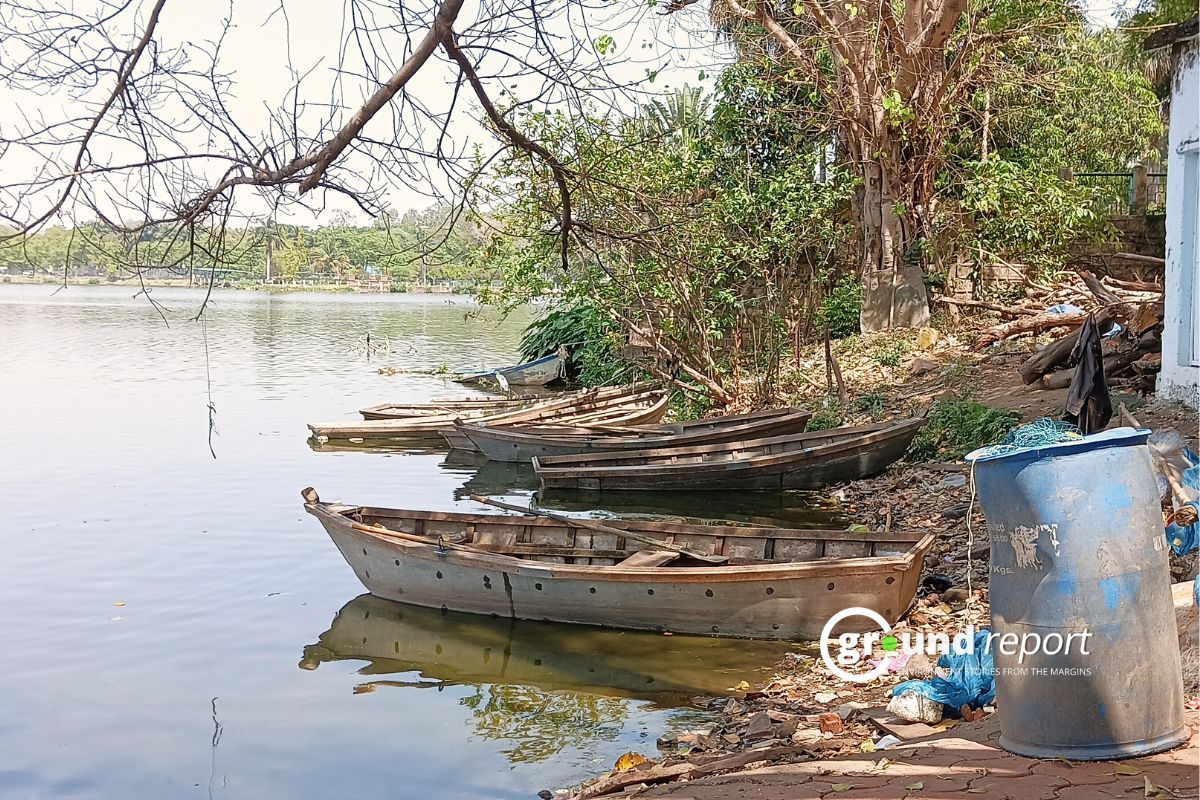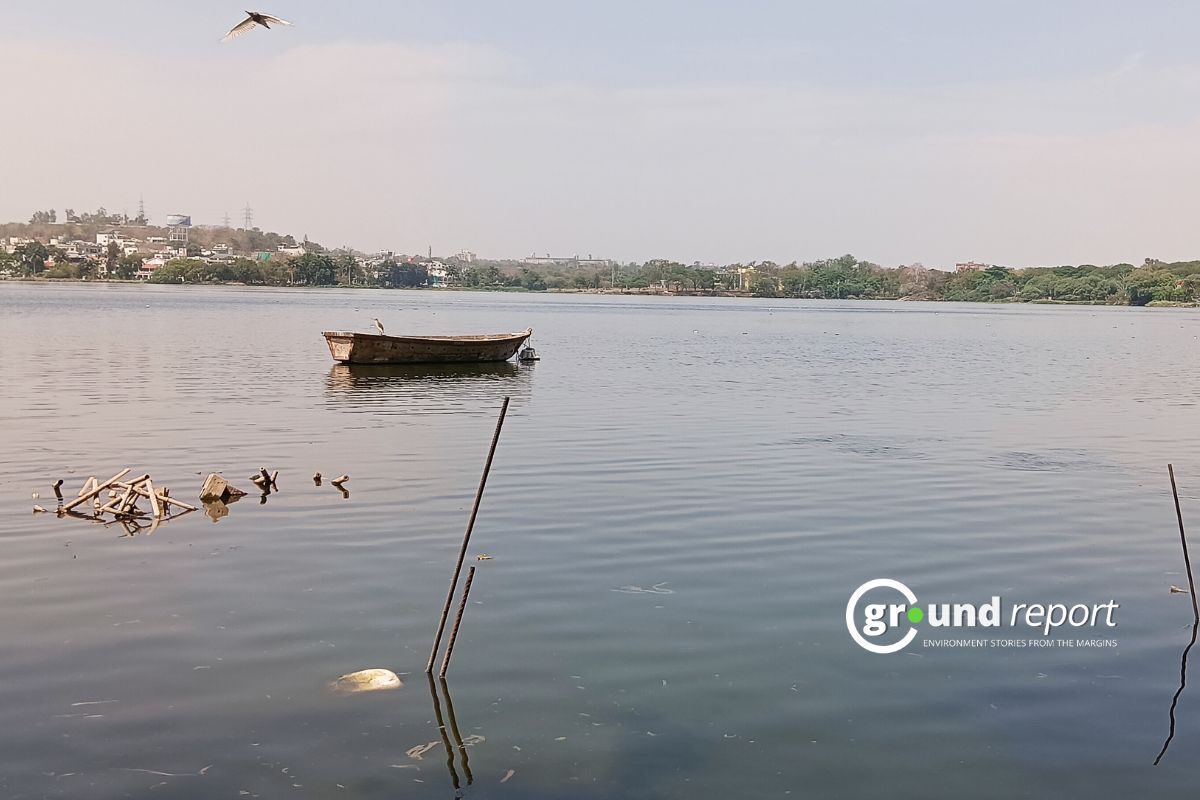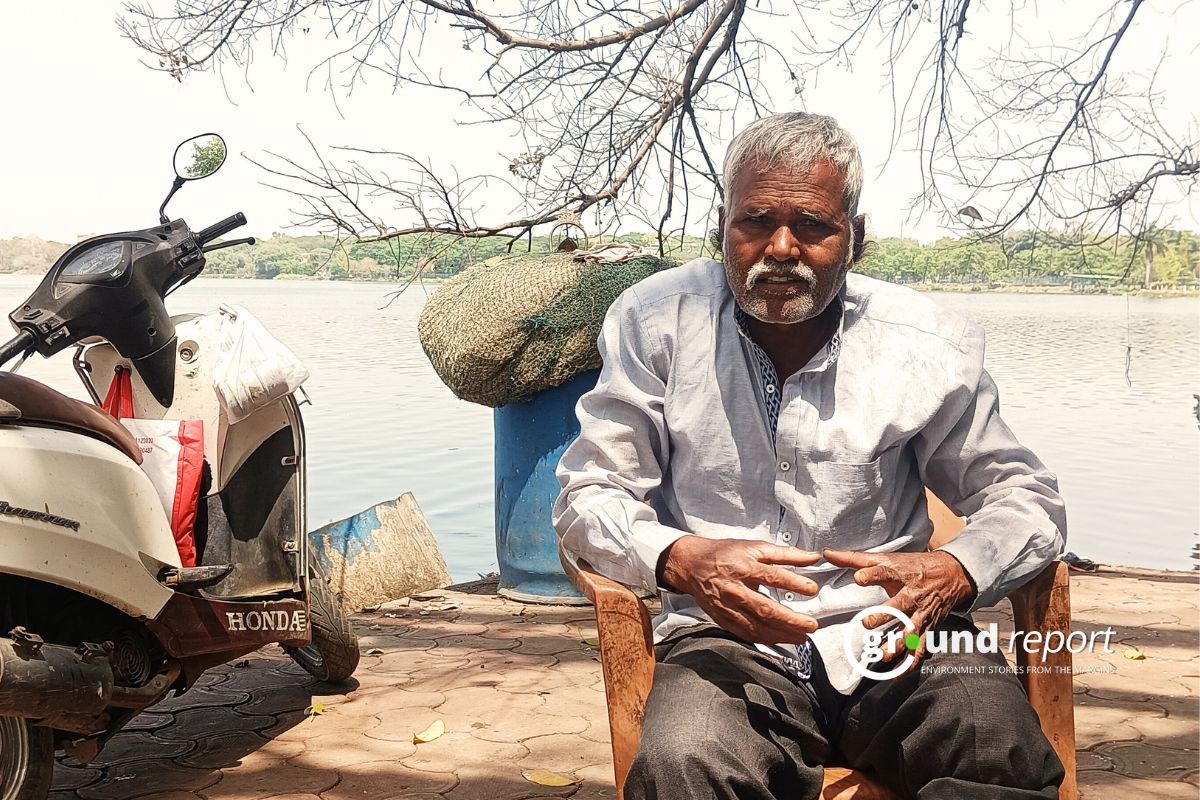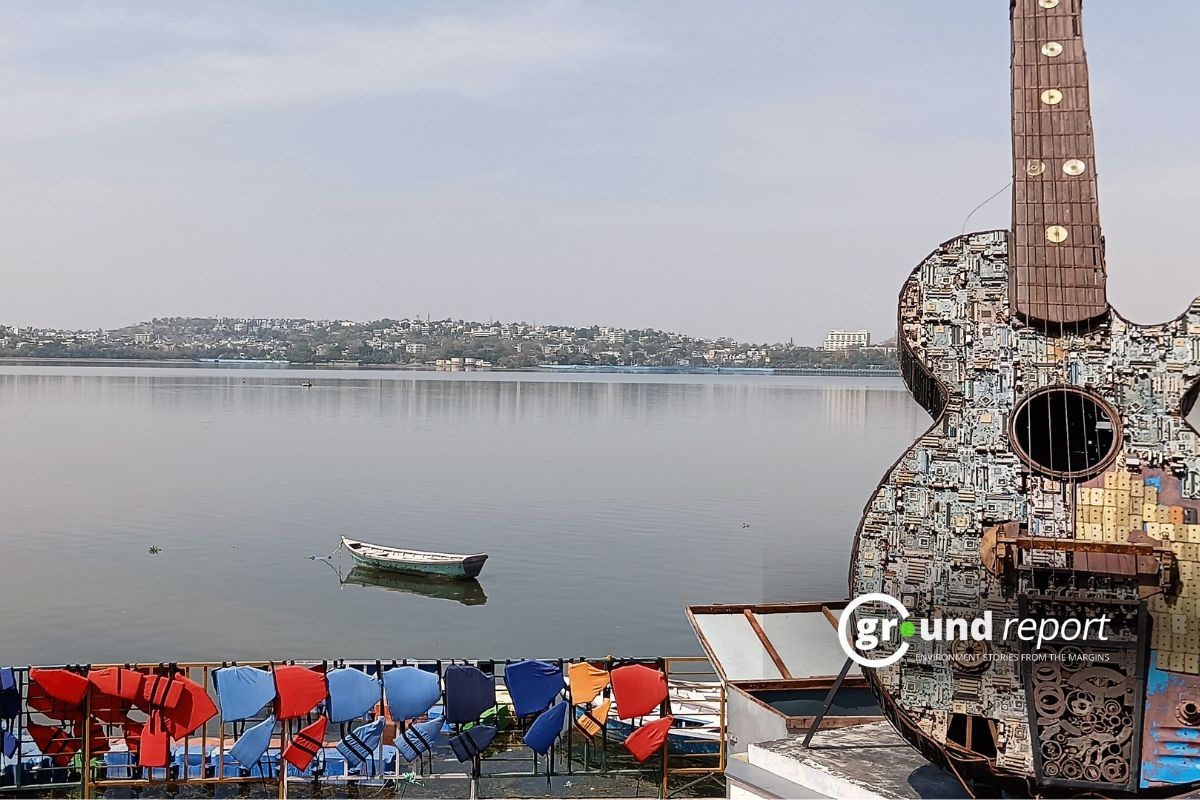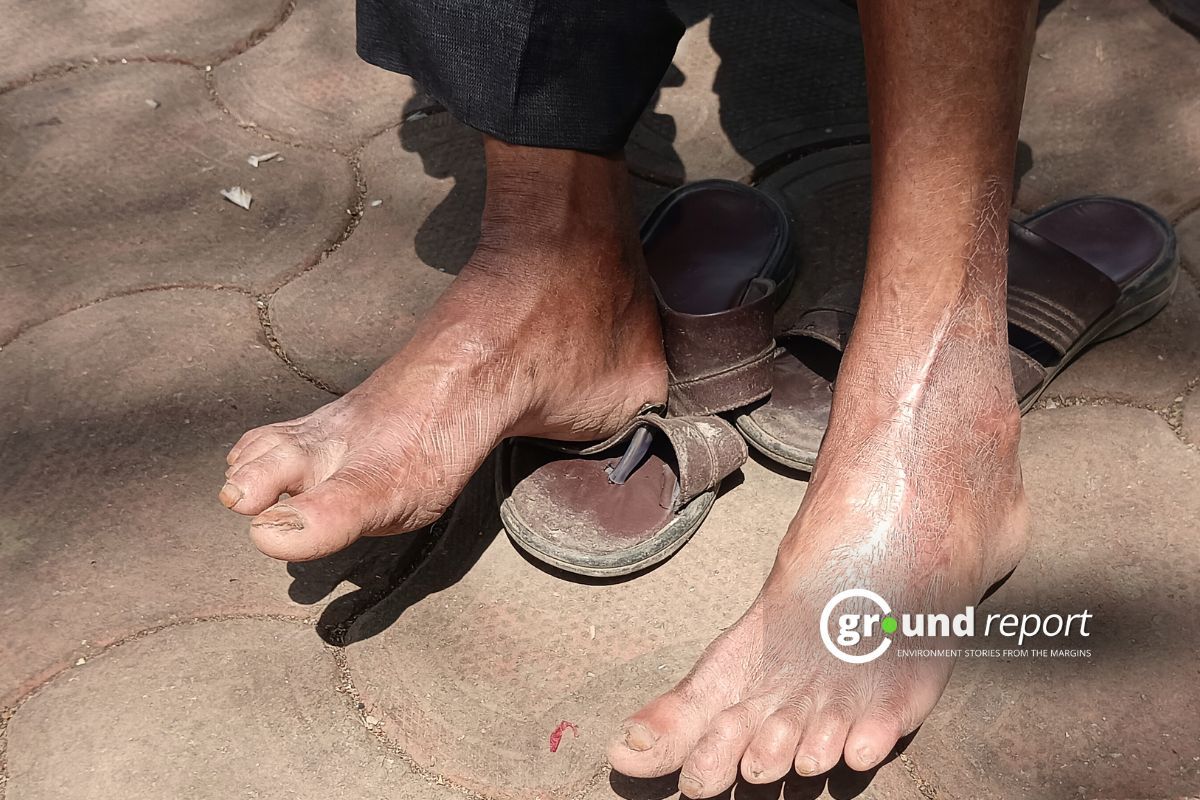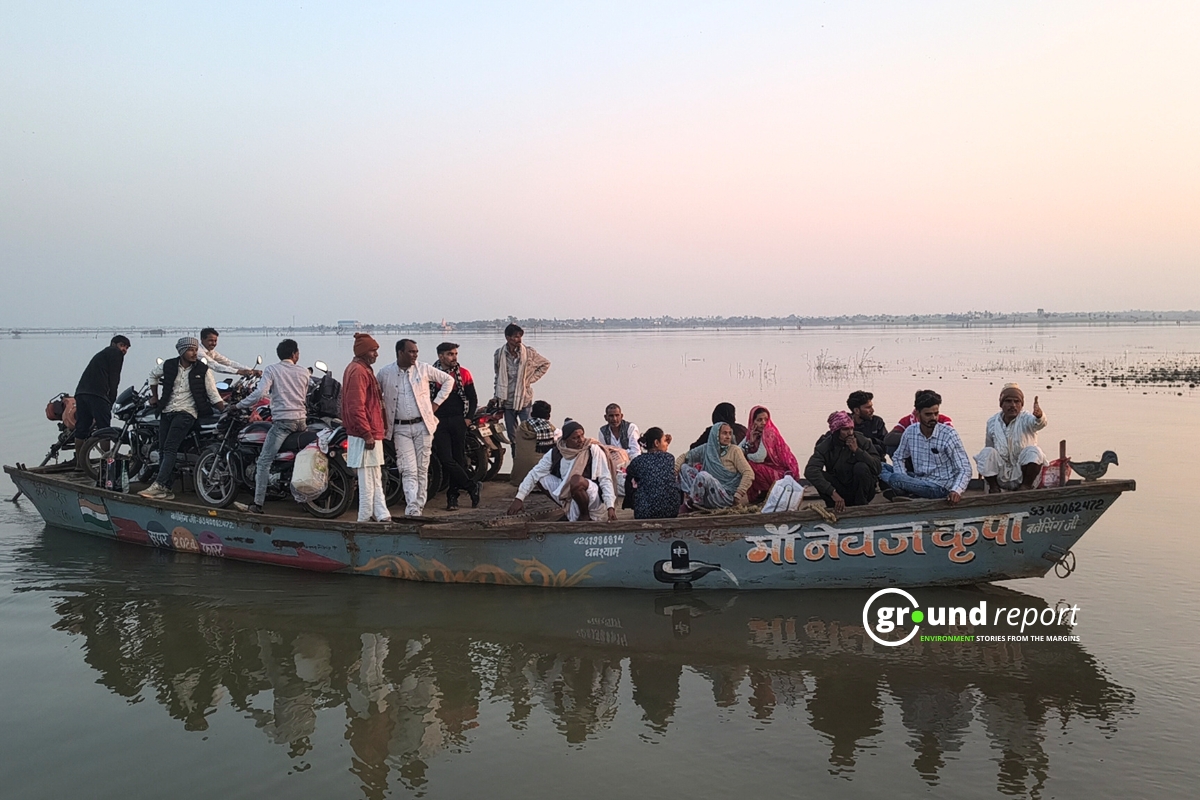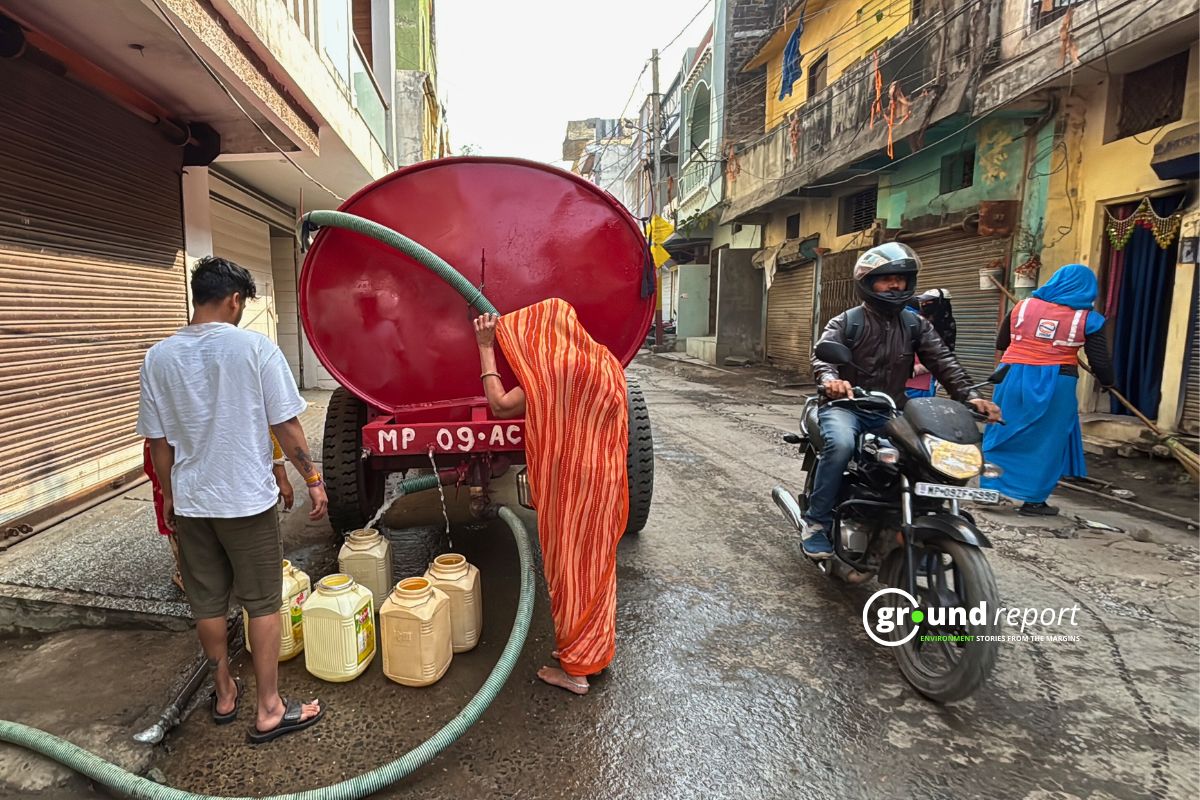In September 2020, just before the Bihar Assembly elections, Prime Minister Narendra Modi launched the Matsya Sampada Yojana (PMMSY) with the aim of encouraging more young people to participate in fishing, from catching fish to adding value to them. The goal was to assist fish farmers in earning more income.
The government planned to allocate Rs 20.50 crore for fishermen from 2020 to 2025, claiming it as the biggest scheme for the fishing industry. The then Union Minister Giriraj Singh said,
“The scheme focuses on doubling the income of fishermen by addressing the difficulties in the fisheries sector, through various interventions.”
As the 2024 Lok Sabha elections approach and four years have passed since its launch, we decided to assess the scheme’s effectiveness through a ground report with the fishermen of Bhopal, a city known for its lakes.
What was the plan?
Apart from the upliftment of fishermen fishing in coastal areas, the scheme is also full of claims of bringing change in the lives of fishermen in in-land fishing (lakes and ponds). It involves many functions like transportation of fish, management, promotion of water bodies, creation of markets, and providing nets and boats to traditional fishermen.
Upon conversing with the city’s fishermen community, it became apparent that the scheme has not reached its intended beneficiaries in the city of lakes.
Sixty-year-old Bhagwandas, who has been fish farming in Shahpura Lake since 1980, voices his frustration, stating,
“I’ve been fishing for 40 years. The economic situation for our community remains unchanged. If I knew another job, I would have left fishing long ago.”
Regarding the scheme, Bhagwandas remarks, “Every year, a lot of money comes in through schemes, but nothing reaches us.” He highlights the poor economic condition of the city’s fishermen, saying,
“If the scheme’s benefits had reached us, we would have been in a better condition.”
Sonu Batham (30), another fisherman from the Shahpura area, shares a similar struggle. “Water pollution has made our lives harder over the past five years. The fish population is decreasing because of pollution in the reservoir,” he explains. Nine out of 12 water bodies in Bhopal are polluted. In September 2023, the National Green Tribunal (NGT) fined Bhopal Municipal Corporation Rs121 crore for untreated sewage and biomedical waste entering water bodies.
Cleaning and deepening of Ponds
Sewage contamination is a major problem in Shahpura Lake. According to fisherman Sonu, the lake’s depth has decreased compared to before. “The local administration should have deepened it, but that hasn’t happened,” he remarks. Currently, fishermen clean the lake daily with the help of labourers. He warns,
“If we don’t clean it for two years, this pond will be destroyed.”
However, this cleaning process is causing a financial strain on the fishermen. They have to personally cover the wages of 10 to 20 labourers who clean the lake daily. Fisherman Bhagwandas explains that during the rainy season, this expense rises to Rs 20,000 as more labourers are needed to clear the debris washed in by the rains.
Marketing Hurdles
According to government data, 6,733 fish markets have been built nationwide under the Matsya Sampada Yojana. However, the lack of better markets is a major concern for Bhopal’s fishermen. In these markets, small-scale fishermen don’t receive fair prices. Sonu explains,
“Big traders buy fish from us for Rs 60 to 70, but they sell it in the market for Rs 150 to 200.”We also don’t get fair value for our hard work,” he laments.
Ajay Keer, a 37-year-old member of the Bhojpal Matsya Society in Bhopal, echoes the marketing issue. He believes that if the government establishes a market for them to sell their goods interstate, it could eliminate losses for small fishermen.
“There’s a big misconception that fish farming is highly profitable. Big businessmen take away our share of the profit,” Keer adds.
Fish production increased, but fishermen didn’t reap the benefits
In the financial year 2021-22, fish production in the country reached 161.87 lakh tonnes, up from 141.64 lakh tonnes in 2019-20. These figures also include marine fish. In Madhya Pradesh alone, fish production rose from 2 lakh tonnes in 2019-20 to 2.93 lakh tonnes in 2021-22.
Despite the increased fish numbers in the statistics, Sonu Batham notices fewer fish getting caught in his nets, and the value of those caught is not significant. “The prized Rohu, Katla, and Naren species fetch higher prices, but they are being consumed by Tilapia fish,” Sonu explains. Tilapia, an invasive fish species, that is multiplying rapidly in Shahpura Lake and preying on small fish, causing harm to the local fish population.
Cold storage conditions and non-availability of hooks
Farmers and fishermen face similar challenges in storing their produce. Ajay Keer highlights the absence of government-provided cold storage facilities. Despite records indicating the establishment of 581 cold storage/ice plants in the country, Ajay, Sonu, and Bhagwandas are unaware of their existence. Sonu suggests that such facilities would allow them to store fish until prices improve.
However, Bhagwandas argues that storing fish is futile without access to hooks in the market. He explains that big traders control the hooks used for weighing fish, making it mandatory for fishermen to use them. Despite their attempts to secure hooks through the Municipal Corporation, Bhagwandas alleges that the influence of these traders hinders their efforts.
Rainy day crisis
Ajay Keer explains that fishing is prohibited during rainy days from June 16th to August 15th. To support fishermen during this period of unemployment, the government provides financial assistance through the Matsya Sampada Yojana. Each year, the Central Government allocates Rs 3,000 to beneficiaries of the scheme. Beneficiaries contribute Rs 1,500, resulting in a total of Rs 4,500 provided at a rate of Rs 1,500 per month over the three-month period.
According to a reply given in Parliament, a total of 59 thousand 435 people have been given this benefit in Madhya Pradesh. For this, the Central Government has also spent Rs 891.54 lakh.
Unfortunately, Bhagwandas does not receive any such benefits. “Despite the government’s financial support during the monsoons, it’s us fishermen who clean the lake choked with garbage flowing from nearby drains,” shares Bhagwandas, pointing to wounds on his foot caused by cleaning the pond. He often steps on glass or syringes, resulting in injuries while cleaning the lake.
The Matsya Sampada Yojana may be touted as the largest government scheme in the country, but ironically, it holds no significance for those who rely on fish farming in the capital of Madhya Pradesh. None of the fishermen interviewed by Ground Report in Shahpura and Bada Talab were aware of this scheme. While it was initiated with the aim of ushering in a ‘blue revolution’ the reality beyond the statistics is that this revolution seems to lose momentum by the time it reaches Bhopal.
Follow Ground Report for Environmental News From India. Connect with us on Facebook, Twitter, Koo App, Instagram, Whatsapp and YouTube. Write us on GReport2018@gmail.com and subscribe our free newsletter.
Don’t forget to check out our climate glossary, it helps in learning difficult environmental terms in simple language.

